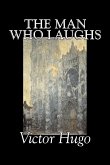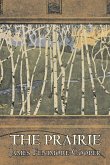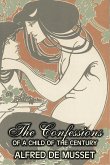Victor Hugo's The Man Who Laughs (first published under the French title L'Homme qui Rit in April 1869) is a sad and sordid tale -- not the sort of tale of the moment Hugo was known for. It starts on the night of January 29, 1690, a ten-year-old boy abandoned -- the stern men who've kept him since infancy have wearied of him. The boy wanders, barefoot and starving, through a snowstorm to reach a gibbet bearing the corpse of a hanged criminal. Beneath the gibbet is a ragged woman, frozen to death. The boy is about to move onward when he hears a sound within the woman's garments: He discovers an infant girl, barely alive, clutching the woman's breast. A single drop of frozen milk, resembling a pearl, is on the woman's lifeless breast . . .
Hinweis: Dieser Artikel kann nur an eine deutsche Lieferadresse ausgeliefert werden.
Hinweis: Dieser Artikel kann nur an eine deutsche Lieferadresse ausgeliefert werden.








